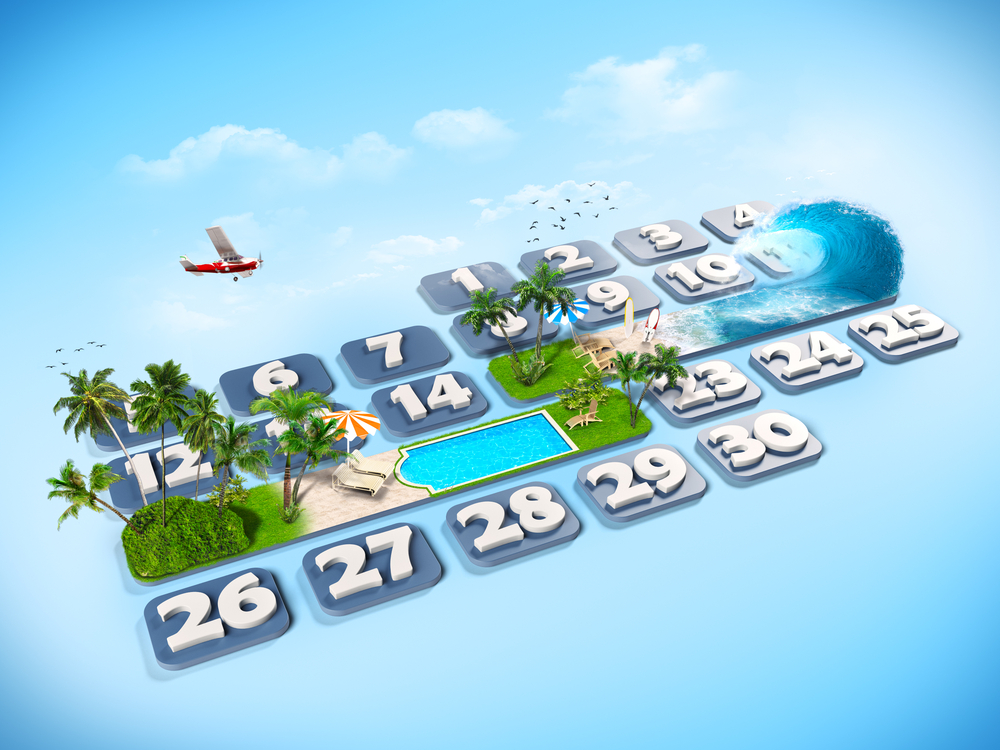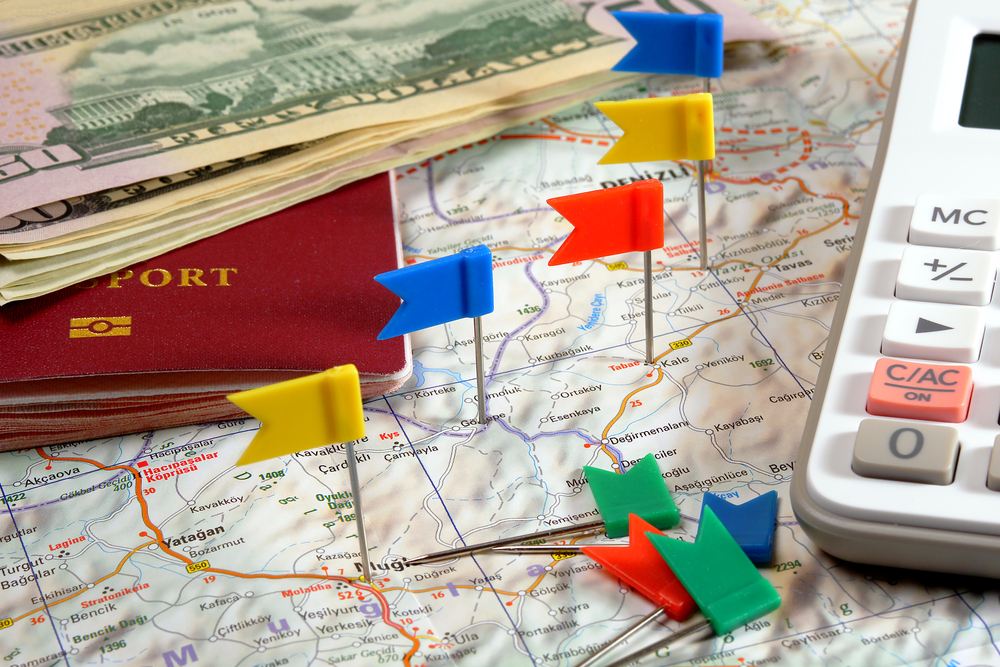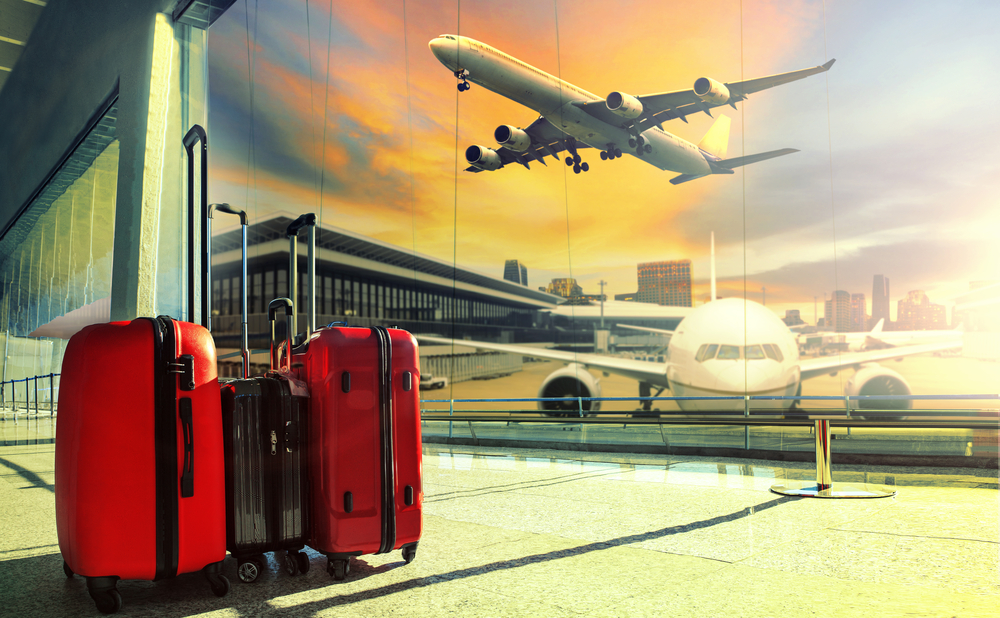First vs Last Minute Travel Booking

Traveling is a beautiful experience that many consider being life-changing. Seeing the world and immersing yourself in different cultures can make you a different person. Even when travelling within your own country, the feeling of leaving your home for a few days or weeks can be cathartic for some people.
Wanderlust. That’s what they call the constant thirst for traveling. It transcends human comprehension, providing a euphoric feeling of contentment when becoming a more worldly person through traveling. However, the process of planning your travels can be incredibly stressful, especially when you don’t know the process.
Travelers vary in attitude. Some prefer planning their travels months ahead, making sure every detail is perfect and every plan is secure. However, there are also those who love the thrill of planning an adventure last-minute. There are benefits and downfalls with each type, and we aim to elaborate on those in this article.
Types of Planning

Before we discuss the pros and cons of last-minute vs first-minute planning, let’s first find out what they actually are.
Last-minute planning involves planning your next adventure weeks or days before the actual trip. There is a sense of novelty when it comes to planning your trips last-minute. These are typically trips that are decided on the spot, spurred by emotion and wanderlust. People get an adrenaline rush when planning a trip last-minute, fitting right into the notion of “You only live once”. Last-minute trips bring the most contentment to those who enjoy traveling without any notion of where the wind takes them.
In contrast, first-minute planning involves months or even years of planning before the trip. Checking cheapest flights, hotels, tours, and other things are primarily involved in first-minute planning. Those who plan first-minute are usually people who have a set schedule with very few days off. Professionals, students, families, and others who have a hard time finding a long period of time to travel are usually first-minute planners.
There are various differences between first and last-minute planning, each with their own purpose.
Cost

Cost is a big difference between first and last-minute planning. When traveling, you need to be able to know how much you will be spending on your trip. Not only are flights, hotels, and tours a big aspect of your budget, but your day-to-day spending and your emergency funds play a big role as well.
First-minute bookers usually have greater leeway with their budget. Since the trip is months away, they have the capability to adjust their lifestyle and save up for it if they need to. Not only that, first-minute travelers also have the capability to change the details of their trip long before it begins. This allows them to adjust their expenses and change their plans to fit their budget.
Last-minute bookers usually plan around a set budget. This is because they can only spend what they currently have in the bank. Since they are planning for a trip that is days away, they usually have little to no capability to change their plans. This leads to a lot of compromises for last-minute bookers. Cheaper, less grandiose hotels, minimal transportation, discovering the place on their own, and even sharing resources like food and water. However, this isn’t that big of an issue for last-minute travelers. They are usually the type of people who travel to a place to see it as a whole, not to stay in their accommodations.
Preparation Time

One clear difference between last and first minute travelers is the time they have to prepare for the trip. The contrast could not be more evident, given the disparity in the time allotted for them to prepare.
Last-minute bookers only have a few days to prepare for their trips. This means that they have less time to plan outfits, set aside money, plot vacation leaves if they are working, and the like. They’re less able to adjust their lives for their trip because the time they have to prepare is so short.
On the other hand, first-minute bookers have all the time in the world. They can plan their leaves to coincide with their travels, set aside some money, and even plan what to wear for every single day that they are traveling. Booking first-minute means you give yourself enough time to make sure you don’t miss anything that could be important to do before the big day.
Transportation

You can’t go on a trip if you don’t have the means to actually go to the location (unless you’re just traveling nearby). The type of transportation can also vary between first and last minute bookers.
First-minute bookers have the capability to choose the type of transportation they want. Planning months ahead of the trip, the costs for flights, ship tickets, or train tickets are considerably lower than they would be if you planned days or weeks before. First-minute bookers can even find promos and discounts if they choose to travel in the off-peak season, leading to more savings for them.
Last-minute bookers don’t have this kind of flexibility. They usually thrive off of seat sales and discounts from budget airlines, or they choose a less expensive way to travel. From economy class on a boat to availing of group bundles on a budget airline, last-minute bookers need to be creative in how they travel. Otherwise, buying plane tickets days of weeks before the trip can prove to be a big problem budget-wise.
Duration of the trip
How long your trip is can vary whether you book first or last minute. Your budget and time plays a big role on how long you can leave town and travel to a different place.
Because they plan ahead, first-minute bookers tend to spend more time in a place compared to last-minute bookers. They’re more able to set their leaves to coincide with the trip, giving them more time to enjoy themselves in the area. First-minute bookers also have the benefit of joining tours at a cheaper rate, since the prices tend to go up once the date of the tour is near.
On the other hand, last-minute bookers have a shorter amount of time to spend in the places they want to go to. Relying on long weekends, holidays, and saved up leaves, last-minute travelers tend to spend less than a week in places they travel to. They also have lesser chances of joining an official tour because of how expensive they can get. However, this doesn’t mean that last-minute travelers enjoy themselves less. In fact, this can be one of the reasons why they book late in the first place. The capability to decide as you go is one of the reasons why last-minute traveling is so fun.
Itinerary
You can do so many things when traveling to a new place. However, the amount of things you can do varies between the two types of travel booking.
Planning is second-nature to first-minute bookers. They have full power over what they want to do when traveling to a different country. Their capability to book tours, trips, and events are unmatched. Because of this, first-minute travelers tend to create a set schedule that they religiously follow when traveling in order to get the most out of the experience.
In contrast, last-minute travelers go where the wind takes them. They are more immersed in the local culture of where they are traveling to. Since they don’t have a set schedule, they are free to explore and discover the place themselves. Some people prefer this compared to the usual “tourist” experience since they are directly exposed to locals. Last-minute travelers are more able to understand the way of life of the places they go to.
Destinations

Because first and last-minute travelers have different budgets, the places that they go to can vary greatly.
First-minute travelers have more options when it comes to destinations. They even have the capability to go to other countries if it fits their budget. Because their planning for a trip months or years before it happens, they’re more able to choose where they want to go. If it’s a local trip, they can compare airline prices and find the right ones for them. If they want to go abroad, they have more time to process the necessary paperwork for leaving the country.
Last-minute travelers are different. They usually go for the cheapest option that’s available to them. This means they either drive to a nearby region or fly within the country. They also need to consider which destinations have the cheapest fares, whether by plane or by ship. If an airline releases a promo or has a discount for certain destinations, you might find a lot of last-minute travelers in those areas.
Frequency of traveling

The amount of time you spend planning as well as how much money you can spend definitely determines how often you can travel.
First-minute travelers can only travel once or twice a year, considering the long preparation time they prefer to have, This means that they can only go to one or two destinations in a year. However, they still spend a longer amount of time in these places.
Last-minute travelers can travel multiple times in one year. Because there are so many long weekends and holidays in a year, last-minute travelers can travel multiple times as long as their budget allows. This means that they see more places and are immersed into more cultures than first-minute travelers do. 3 days are enough for last-minute travelers to experience the culture of an area, and they have the capability to experience a different once next month if they want to.
Nature of the trip

This is where things could vary from person to person instead of between the two types of bookers. The motivation behind a trip is different for each individual, but usually falls into certain criteria for first and last minute travel bookers.
First-minute travel bookers are usually people who want a set date for a time off. These are people who are working 9-to-5 jobs, people who don’t have a lot of free time, or people who just want some extra planning before a trip. Traveling could mean a variety of things for them. It could mean time to rest, time dedicated to friends and family, or time to themselves, away from the hustle and bustle of their normal day-to-day lives.
Last-minute travelers are different. They seek thrills, adventures, or a momentary reprieve. Last-minute travelers travel with either a group of close friends or alone. Travelling represents discovery, bonding, and soul-searching for these people. Just because they committed less time in planning does not mean that they get less from the experience. In fact, last-minute travelers tend to get the most out of their travels because they throw themselves into the experience. Travelling isn’t just a means to an end for them. It is an investment in their growth as people.
There are so many differences between first and last minute travel booking. Whether you prefer having more time to prepare for a trip or you want an adventure, it’s always nice to know the differences between the two. You don’t need to be one or the other, but rather be a mixture of both. Traveling is a beautiful experience that every person should go through once in their lives. It can change the way you see the world, and it can even change the way you see yourself.
This article wasn’t made to determine whether one is better than the other, but rather show you the benefits of both last and first minute travel booking. Whatever type of booking you prefer, make sure to always stay within your means and follow the plan you set out for yourself. Don’t be too strict on the schedule, though, since experiencing a new place is more than just visiting famous tourist sites. Sometimes, it’s in immersing yourself in local culture where you truly find the heart of a place. Happy travels!